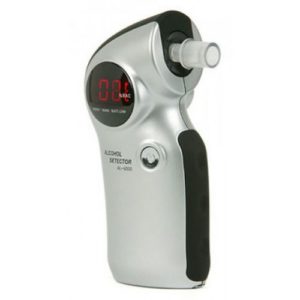Another name for a sedative is a tranquilliser. These drugs are man-made and they are given over the short-term by doctors. They are used to treat ailments such as stress, insomnia, anxiety, or depression. Women in the UK are prescribed these more than men.
The most common tranquilliser drugs come from the class of drugs we call benzos or benzodiazepines. There arе many different brands and some of them are as follows:
- Diazepam or Valium™
- Lorazepam or Ativan
- Nitrazepam or Mogadon and it has the street name of moggies
- Temazepam or Normison and eggs or jellies is the street name
- Flunitrazepam or Rohypnol™ with the street name of forget-pill or roofies
Why Are These Tranquillisers Abused by People?
These drugs are easy to obtain so they are also еasily abused. They are common drugs that are abused and they are used after other drugs like cocaine or ecstasy to calm a person down. Some people use them because they enhance the effect of alcoholic beverages.
On the street Temazepam is a drug that’s used to substitute Rohypnol™ or heroin. This drug is often used in instances of date rape where it’s put in drinks to spike them. The person doesn’t know that their drink has been spiked and they are vulnerable to rape and abuse under the influence of this drug. At Zoom Testing we offer a test which allows you to easily test your drink or urine for the presence of any benzos (rohypnol). Click here for more information on rohypnol, date rape and the drink spike test kit.
What Do These Drugs Look Like?
A tranquilliser comes in a capsule or a white tablet form. They may also have different colours which depend upon their strength. Some are liquids or gels such as Temazepam.
How are Tranquillisers Taken?
People take them as capsules or tablets under medical conditions. This is done on the street as well but sometimes they are also injected. The capsules arе either emptied or the tablets are crushed. When someone injects these drugs, the results can be lethal.
What Happens to You When You Take Tranquillisers?
These drugs calm you down and reduce restlessness or agitation. They can produce drowsiness and decreased dental activity. They can relax the muscles and when taken in higher doses the person can become dizzy, forgetful and can go to sleep.
Once a person takes a tranquilliser the effects can start at 10-40 minutes and then last about 6 or so hours. The strength and the type of drug that is used determines the duration of the effect of the drug. Operating machinery or driving shouldn’t be attempted when on these drugs as there’s a higher risk of accidents. There can be aggression and loss of short-term memory associated with some tranquillisers. These drugs don’t mix well with alcohol or other depressants and an overdose can occur.
What Are Some Long-Term Effects From Taking Tranquilliser Drugs?
These drugs arе fine at lower doses because they are given to you over the short-term and aren’t a risk to your health. If they are taken over the long-term you can develop a tolerance for them and you need more of the drug to get the same impact and this leads to dependency. They should only be taken over a period of 2-4 weeks and for cases where they are used for insomnia, a break for 2-3 nights is recommended.
After 2-3 weeks they usually don’t work as sleeping pills any longer and after 4 months they won’t work for episodes of anxiety. If they arе used over the long-term then stomach disorders, aggressive behaviour, memory loss, depression, and confusion can occur.
When a person withdraws from these drugs they can have several side effects. These can include headaches, panic attacks, sickness, anxiety, irritability, and nausea. A person should be taken off these drugs under medical supervision if they have been on them for a long time. It’s advisable to talk to your doctor to find out when you should stop taking them or for general advice about tranquillisers.
Tranquillisers and the Law in the UK
In the UK, most tranquilliser drugs like benzodiazepines are classified as controlled substances under the Misuse of Drugs Act 1971. This means there are restrictions around their possession, supply, production, and import/export.
For example, the possession of benzodiazepines without a prescription or authorisation is illegal. The penalties for unauthorised possession depend on the specific substance and the amount, but can include up to 5 years imprisonment and an unlimited fine. Supplying or selling benzodiazepines illegally can result in up to 14 years imprisonment and an unlimited fine.
Despite being classified drugs, benzodiazepines remain widely prescribed in the UK for conditions like anxiety, insomnia, and epilepsy. In recent years, concerns around dependence and diversion of these medications for recreational use have led to tighter prescribing regulations. Doctors are advised to limit prescriptions to short 2-4 week courses and avoid repeat prescriptions without review.
While most users access tranquillisers through diverted prescriptions rather than illegal drug markets, there are still issues with these medications being illicitly imported or manufactured. Temazepam and diazepam are among the most commonly seized benzodiazepines at the UK border. Clandestine laboratories synthesising illicit benzodiazepines have also been uncovered in Britain.
To crack down on the illegal supply, additional enforcement powers have been introduced over the years. Since 2001, tranquillisers like Rohypnol have been scheduled as Class C drugs rather than prescription medications. This means police can now search, seize or arrest in relation to suspected possession.
More recently, the Psychoactive Substances Act 2016 banned the production, distribution, sale or supply of any substance intended for human consumption that is capable of producing a psychoactive effect. While critics argued this overly broad “blanket ban” would hamper harm reduction initiatives, it does provide another tool to prosecute the sale of illicit benzodiazepines.
However, some argue that further criminalisation of tranquilliser use may be counterproductive. Proponents of a harm reduction approach say that dependent users need expanded access to addiction treatment and support services, rather than simply punishment through the criminal justice system. There are also concerns that more stringent laws could simply push the tranquilliser trade further underground.
In summary, tranquillisers remain tightly controlled substances in the UK subject to criminal penalties for unauthorised possession, sale or supply. However, policymakers continue to grapple with balancing enforcement of the laws with harm reduction strategies for dependent users of these medications.
Photo Credit: “Pills 1” (CC BY 2.0) by e-MagineArt.com
Zoom Testing is a leading UK drug testing company and a supplier of Drug Test Kits.





